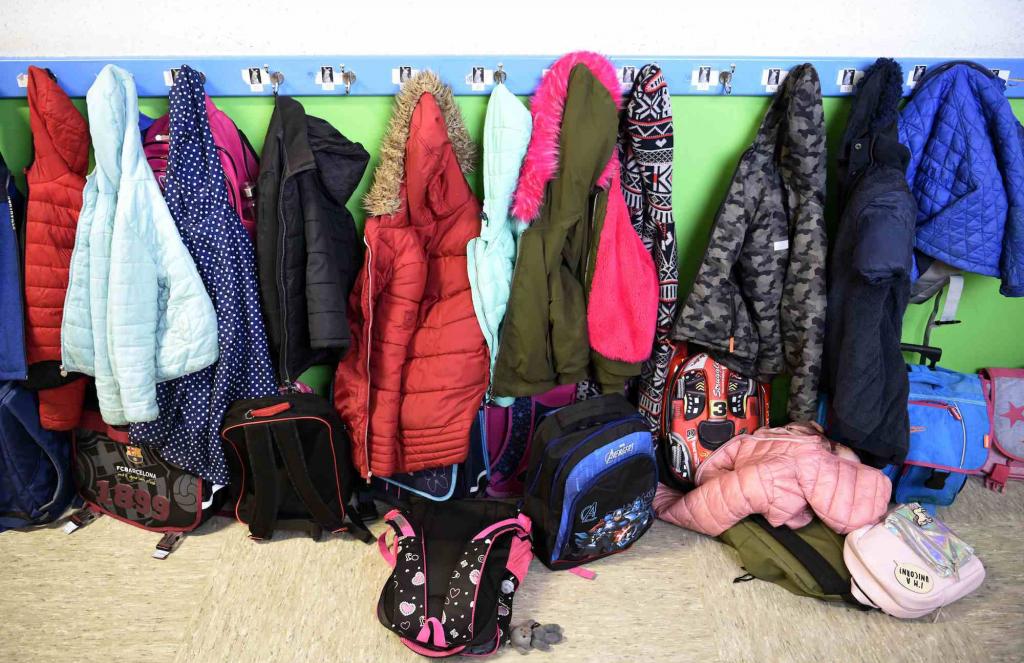Thessaloniki gets ready for its metro launch in November
The underground rapid transit lines have been under construction for almost two decades due to various project delays
 TheMayor.EU logo
TheMayor.EU logo 
The move follows a similar initiative implemented into regular primary schools , Source: City of Ghent
According to Elke Decruynaere, Alderman for Education, digital registration platforms help guarantee students get the education they need
Today, authorities in Ghent, Belgium, announced the launch of a new digital system that will allow parents to register children with special needs in schools for the 2022-2023 year. The move is aimed at alleviating some of the pressure put on the parents due to the fact that there is a fairly limited number of available free spots in schools.
According to a statement by the city, the demand for special schooling outpaces the needs of the local community, especially in the rural areas outside of Ghent itself. Thus, quite often due to a lack of space in the city’s special schooling programmers, parents are forced to seek education in neighbouring towns like Lokeren, Sint-Niklaas and Zele and a school in Beveren.
This forces them to double register their kids, which further diminishes the spaces for some while allowing others to pick and choose. Over the past, this has caused educational institutions to form waiting lists, increasing uncertainty for the families.
To avoid this, the schools in special primary education in Ghent have started to collaborate with those in neighbouring communities to create a joint registration platform for the 2022-2023 school year. On the platform parents can double-register as well. However, schools also share information, which allows them to better determine to whom to allocate the spots.
The procedure applies to all children who wish to enrol in special primary education regardless of age. The registration process will be open from today, until 6 May.
Elke Decruynaere, Alderman for Education, explained that this initiative was modelled after the one local authorities did with regular primary education. According to her, this approach had led to good results in mainstream primary education when it came to guaranteeing pupils a place at school.

The underground rapid transit lines have been under construction for almost two decades due to various project delays

Now you can get your wine in Talence by paying directly in Bitcoin

That’s because the state has to spend money on updating the railway infrastructure rather than subsidizing the cost of the popular pass

Rethinking renewable energy sources for the urban landscape

The examples, compiled by Beyond Fossil Fuels, can inform and inspire communities and entrepreneurs that still feel trepidation at the prospect of energy transition

Now you can get your wine in Talence by paying directly in Bitcoin

The 10th European Conference on Sustainable Cities and Towns (ESCT) sets the stage for stronger cooperation between the EU, national and local level to fast track Europe's transition to climate neutrality.

At least, that’s the promise made by the mayor of Paris, Anne Hidalgo

The underground rapid transit lines have been under construction for almost two decades due to various project delays

At least, that’s the promise made by the mayor of Paris, Anne Hidalgo

Hostal de Pinós is located in the geographical centre of the autonomous region

Despite its church-y name, the district has long been known as the hangout spot for the artsy crowds

Urban dwellers across the EU are having a say in making their surroundings friendlier to people and the environment.

Forests in the EU can help green the European construction industry and bolster a continent-wide push for architectural improvements.

Apply by 10 November and do your part for the transformation of European public spaces

An interview with the Mayor of a Polish city that seeks to reinvent itself

An interview with the newly elected ICLEI President and Mayor of Malmö

A conversation with the Mayor of Lisbon about the spirit and dimensions of innovation present in the Portuguese capital














